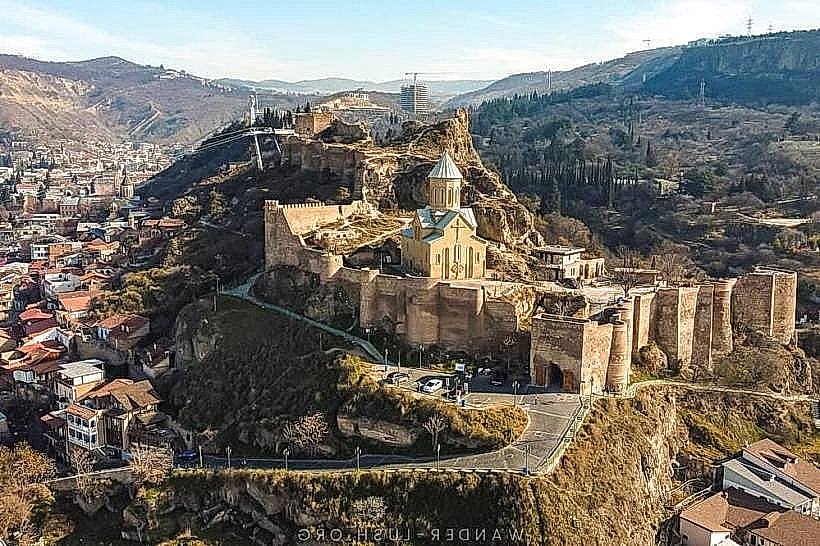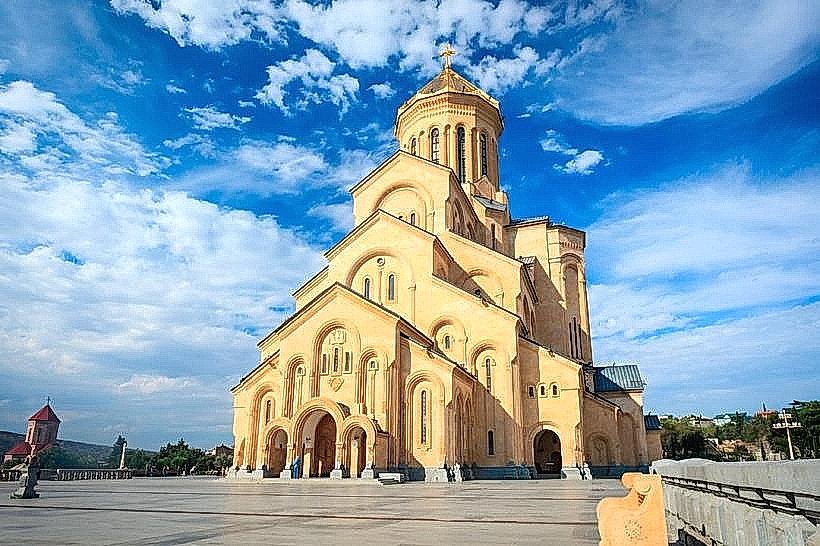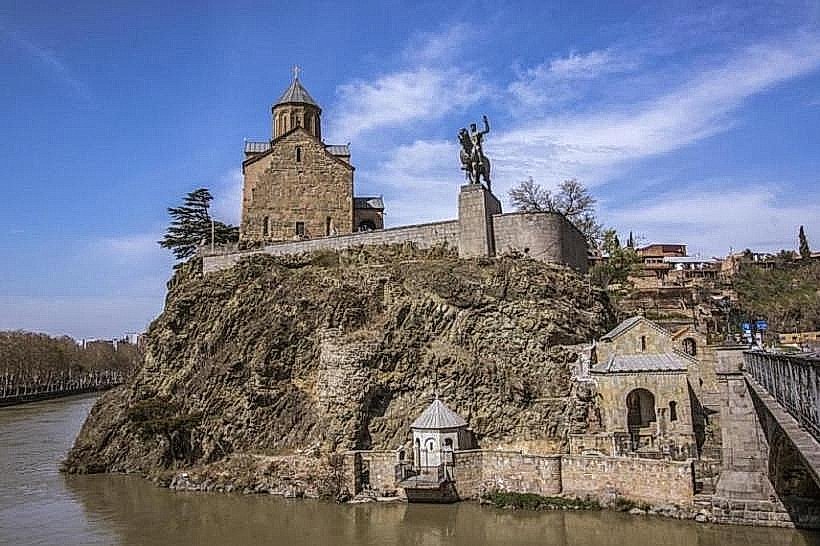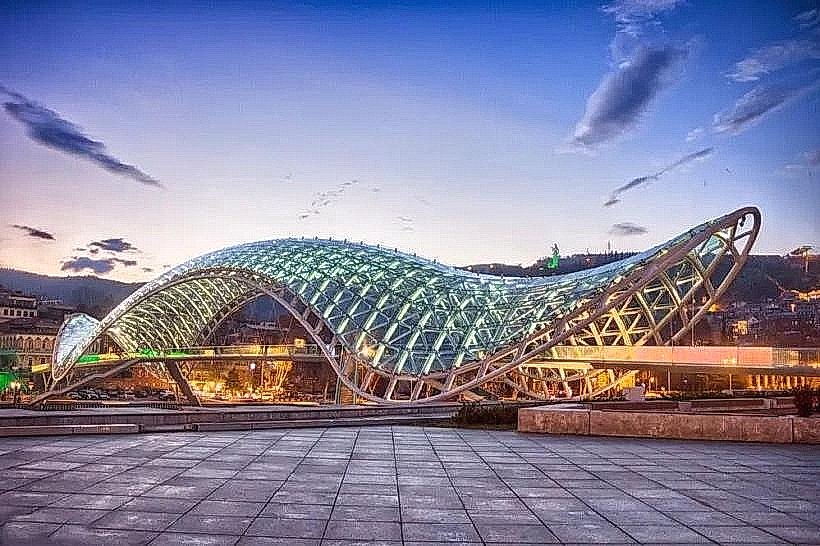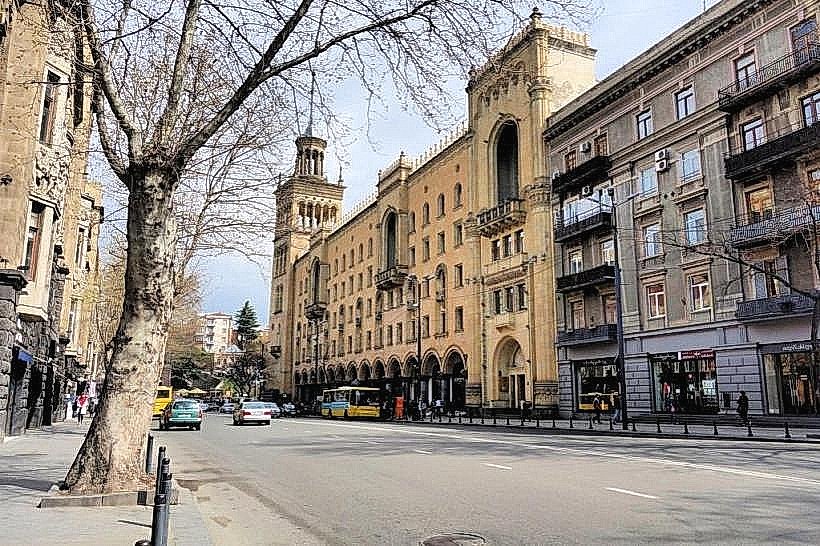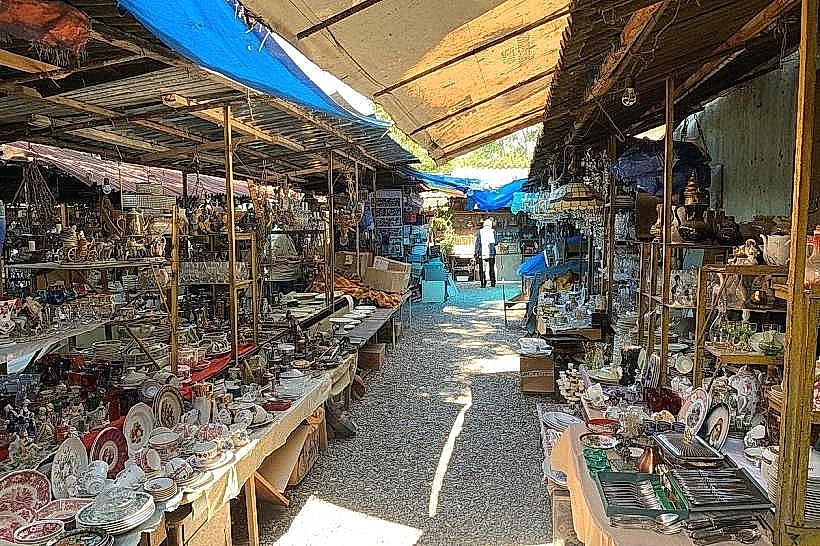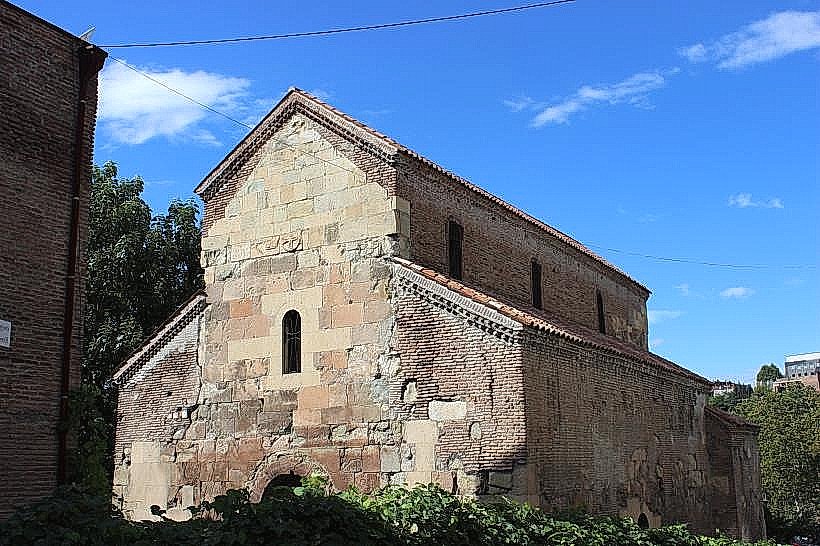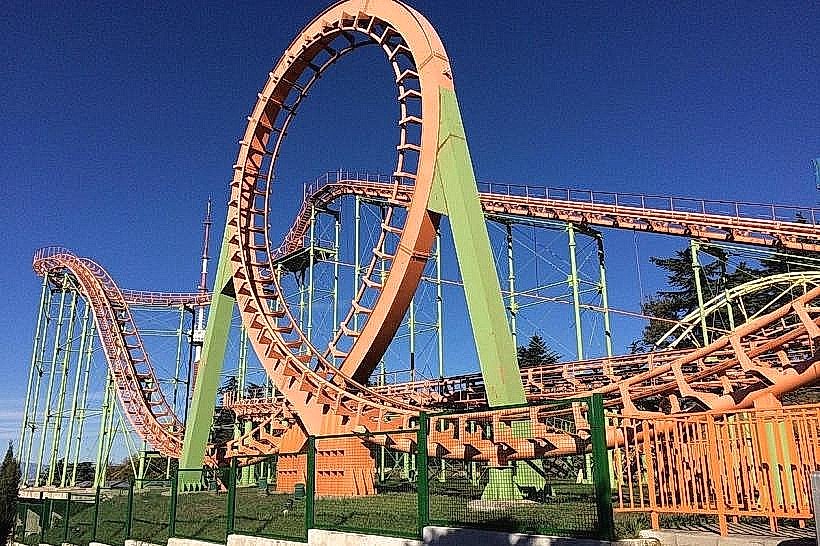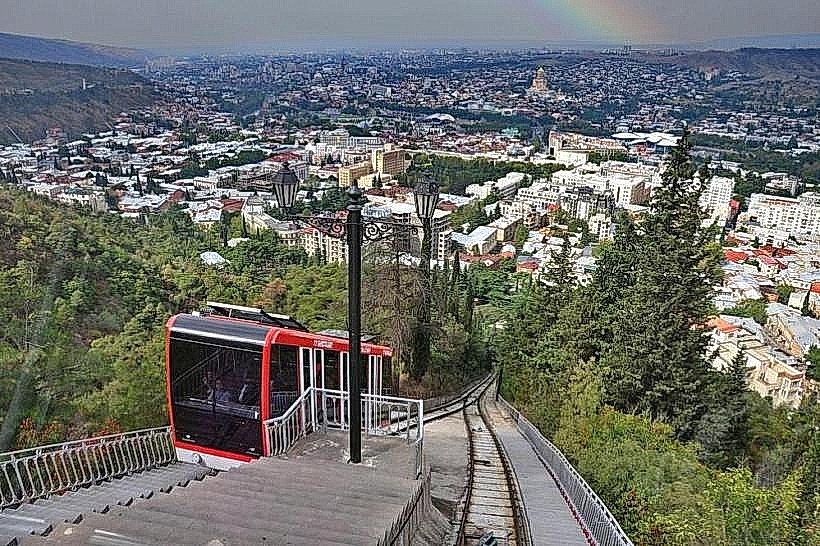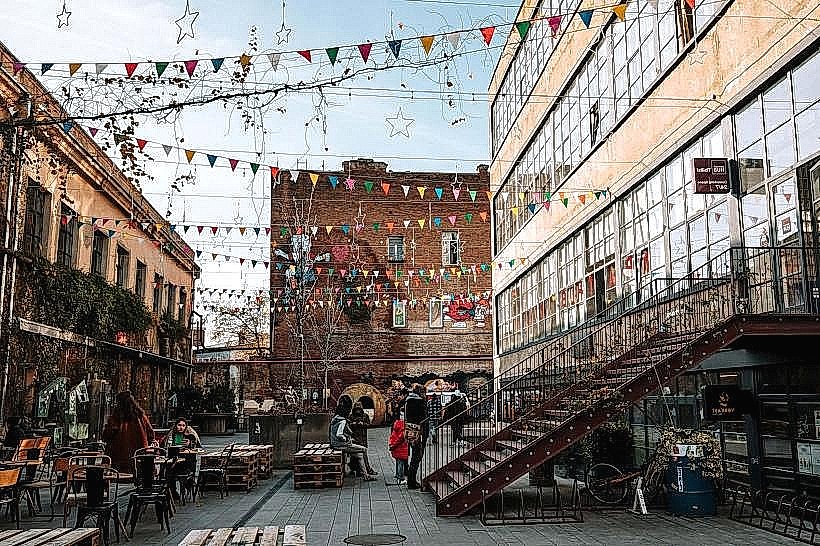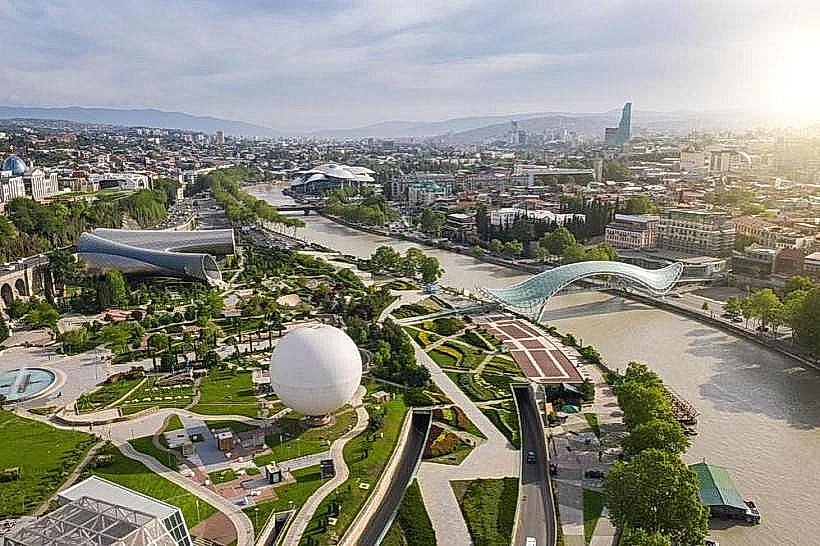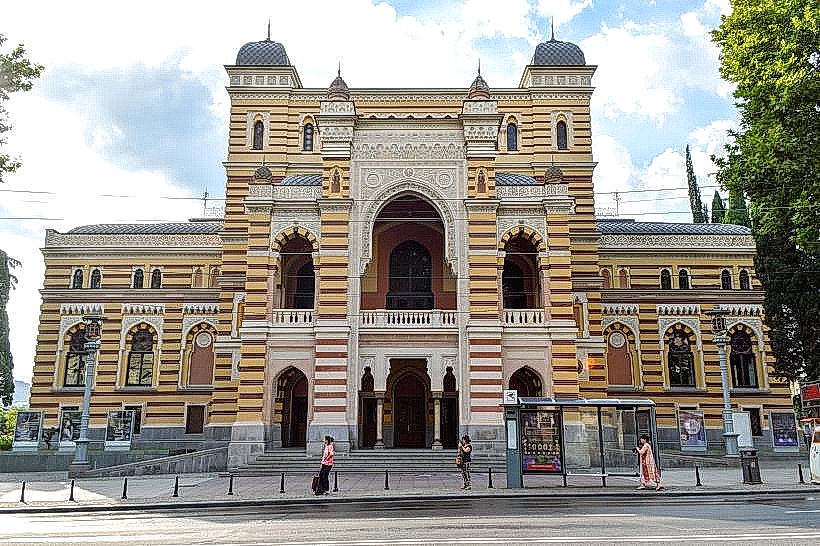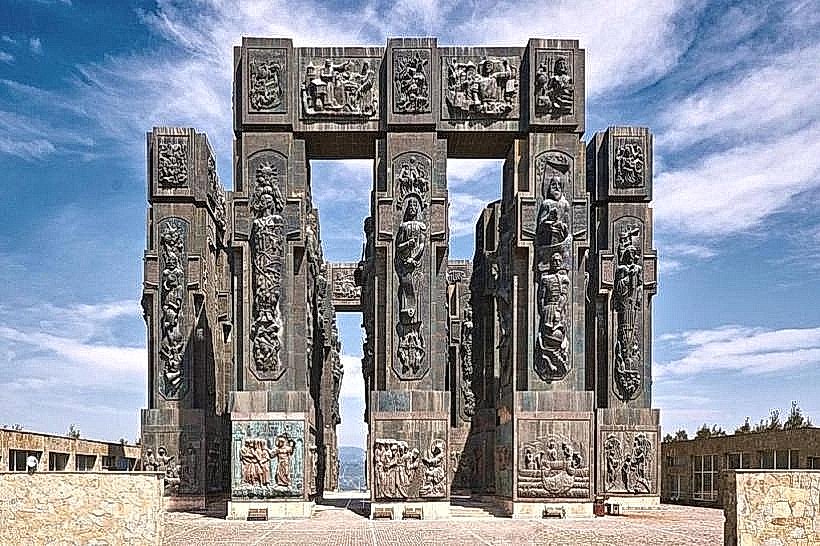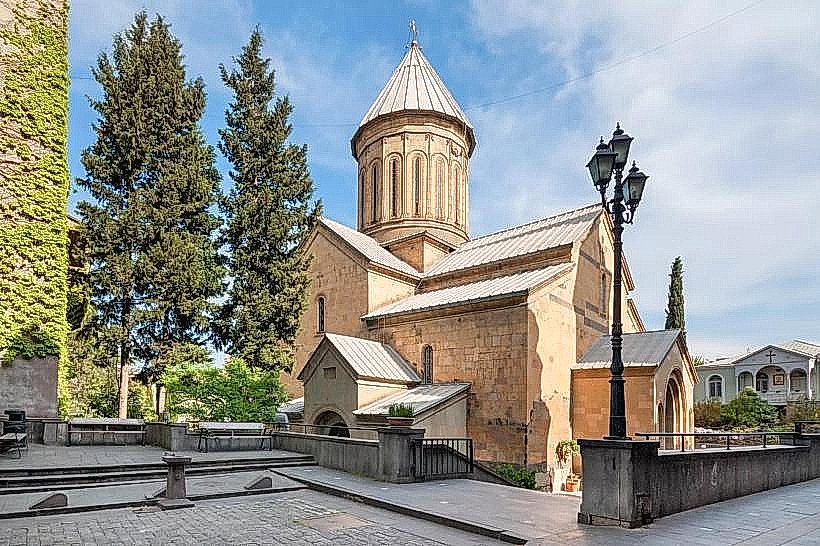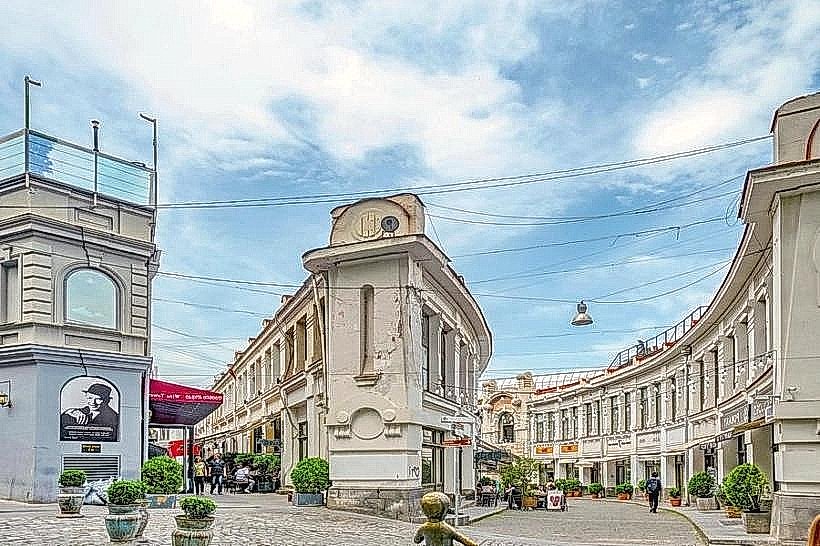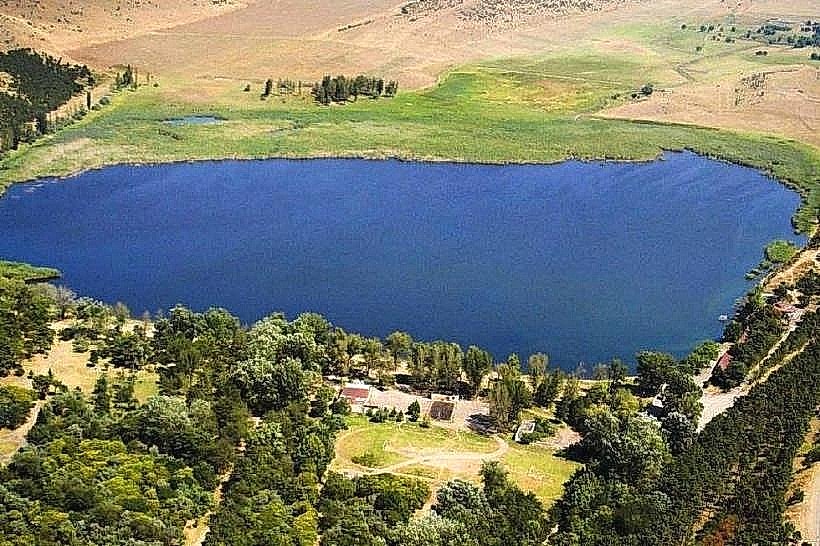Information
Landmark: Sulfur Baths (Abanotubani)City: Tbilisi
Country: Georgia
Continent: Asia
Sulfur Baths (Abanotubani), Tbilisi, Georgia, Asia
The Sulfur Baths, known locally as Abanotubani, are a complex of public bathhouses located in the Old Town of Tbilisi, Georgia.
Visual Characteristics
The bathhouses are characterized by their distinctive domed roofs, constructed from brick and stone, often with a visible layer of moss. Many feature arched entrances and windows. The water flowing from the springs is a pale yellow to light brown color, indicative of its sulfur content. The architecture blends traditional Persian and Caucasian styles.
Location & Access Logistics
Abanotubani is situated in the heart of Tbilisi's Old Town, at the base of the Narikala Fortress. It is approximately 1 kilometer south of Freedom Square. Access is via Vakhtang Gorgasali Street. Limited street parking is available in the vicinity, and it is advisable to use paid parking garages located a short walk away. Public transport options include bus lines that stop near the Old Town, with the closest stops being "Abanotubani" or "Sioni Cathedral."
Historical & Ecological Origin
The existence of the sulfur springs in this area is attributed to volcanic activity. According to legend, King Vakhtang Gorgasali discovered the hot springs in the 5th century and chose the location for his capital due to their therapeutic properties. The current bathhouses were largely constructed in the 17th and 18th centuries, with some undergoing renovations in the 19th and 20th centuries.
Key Highlights & Activities
Visitors can experience sulfur baths by booking private rooms or public bathing sessions. Massages are also offered. Observing the unique architecture and the natural sulfur springs is a primary activity. Walking through the narrow streets surrounding the baths provides insight into the area's historical development.
Infrastructure & Amenities
Each bathhouse typically contains private rooms with bathing pools, changing areas, and seating. Public bathing areas are also available in some establishments. Restrooms are present within the bathhouses. Shade is provided within the bathhouse rooms. Cell phone signal (4G/5G) is generally available in the surrounding streets, though it may be weaker inside the bathhouses. Food vendors and small cafes are located in the immediate vicinity.
Best Time to Visit
The baths are open year-round. For photography, early morning or late afternoon light offers softer illumination on the brickwork. The temperature of the water remains constant, so tide is not a factor. Visiting during weekdays may result in fewer crowds.
Facts & Legends
Legend states that Tbilisi was founded by King Vakhtang Gorgasali after his falcon fell into a hot sulfur spring and was either healed or discovered the springs. The distinctive domed roofs are designed to allow steam to escape while retaining heat.
Nearby Landmarks
- Narikala Fortress (0.2km North)
- Mother of Georgia Statue (0.3km North)
- Sioni Cathedral (0.4km West)
- Leghvtakhevi Waterfall (0.1km North)
- Bridge of Peace (0.8km Northwest)

